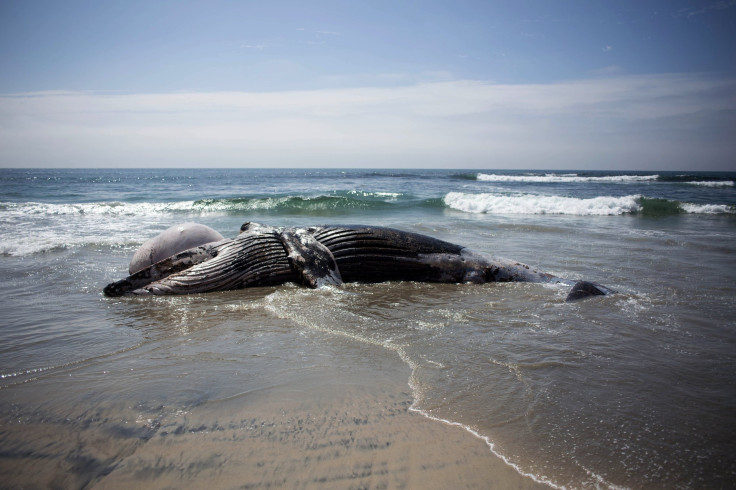Watch: Massive 30 Ton Whale Carcass Washes Up On Rio de Janeiro Beach

A giant humpback whale carcass washed ashore Wednesday at the Ipanema beach in Rio de Janerio, Brazil. The decomposing animal was determined to weigh 30 tons and measured up to 49 feet long, biologists said. The whale had been dead for about a week or more.
The whale carcass washed up as dozens of beachgoers were present. Many people stopped to take pictures of the massive creature, whereas several others continued to play in the water nearby. Beachgoers were warned to stay away from the whale, which was reportedly putting off a strong odor, according to the Guardian. Biologists determined that the whale had entered an advanced stage of decay upon its discovery.
Scientists have not yet determined a particular reason as to why whales beach themselves, but this phenomenon has occurred periodically throughout the course of time. Historical records show that whales have begun washing ashore since 300 B.C., but the occurrence has happened more frequently in recent years. The increase in man-made materials and chemicals has been attributed by biologists and scientists as a potential reason for beached whales.
Whales are frequently beached along the coast of Brazil. A large group of people worked together to save a humpback whale in August 2017 after it washed up along a Brazilian beach. The beachgoers attempted to get the large animal back into the ocean.
Mass strandings of whales also occur. Scientists discovered 337 sei whales beached in 2015 along remote waters off Patagonia, Chile, considered one of the largest mass strandings in history. Photography had reportedly identified 305 physical bodies and 32 skeletons.
Whales can die at sea and wash ashore, whereas others can beach themselves when alive and die ashore. Not all strandings, however, can be determined.
"Statistically, we are only able to determine the cause of a stranding in about 50 percent of all cases worldwide," Darlene Ketten, a neuroethologist and expert on hearing in marine mammals, said in 2009 to Scientific American. "In some cases, it is obvious, like a ship strike leaving an animal in poor condition. In the northeastern United States, pneumonia is a common cause of stranding."
Reports of washed up whales tend to follow human populations, according to Ketten.
"As beach areas become more popular — meaning more people going to [the] beach and more people interested in whales and dolphins — you get more reports," she said.
© Copyright IBTimes 2024. All rights reserved.





















